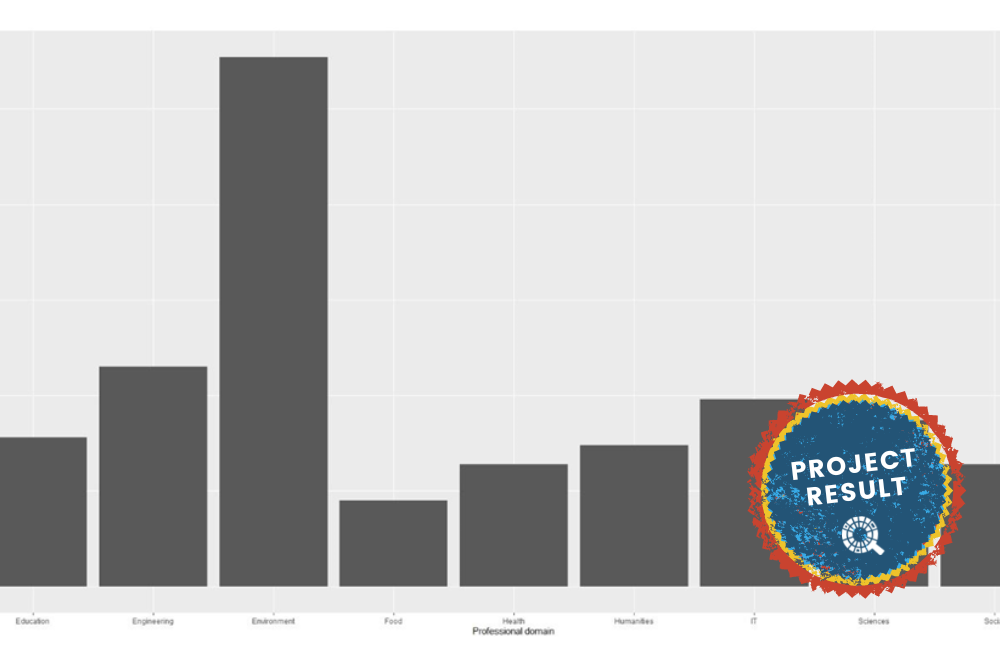Citizen science (CS) projects encompass a variety of different disciplines (e.g. health, biology, education). However, it is not clear whether volunteers’ working i.e. professional discipline is related to the discipline of their selected project.

We would like to inform that this project is inactive since December 2022. As a result, the content presented on this website is static, which means it cannot be updated, and no new information will be added. Consequently, interactive features such as the search function, or subscription and commenting capabilities are unavailable.

Citizen science (CS) projects encompass a variety of different disciplines (e.g. health, biology, education). However, it is not clear whether volunteers’ working i.e. professional discipline is related to the discipline of their selected project.
The study aim is to investigate how a combination of methods (such as data analysis, computational or quantitative methods) could be applied to gather CS projects information to support teacher’s practice and inspire them.
In this case study we intended to reflect on how the online data about CS is shared and communicated in the websites, how could this data be extracted massively and stored in a central database to, later be analysed with different purposes. One of its, studied in this article, is the usage of all the information in educational contexts.
Project descriptions are a central element of a Citizen Science project’s online presence and thus play a key role in recruiting volunteers. Very often, they are the first point of contact between a project and prospective participants. As such, they need to be reader-friendly and accessible, spark interest, contain all the necessary practical information, and motivate readers to join by explaining convincingly how they will benefit from participating in the project. The purpose of this study was to examine whether the project descriptions stored in the CS Track database meet these criteria.
One of the main objectives of CS Track project has been to realise an explorative study of CS projects in Europe, with the aim to categorize, cluster and build a database of CS projects that would allow an analysis of them. This has allowed: (1) to compile of a database of CS projects (and their corresponding CS activities) in the European Union and Associated Countries; (2) to document of a collection of these projects to explore their availability of data for further analysis following the knowledge gaps identified by the literature review.
A CS Track team of researchers including Reuma De-Groot, Yaela N Golumbic, Fernando Martínez Martínez and H. Ulrich Hoppe recently published a paper entitled “Developing a framework for investigating Citizen Science through a combination of web analytics and social science methods – the CS Track perspective”. This article presents the project’s framework that aims to complement existing methods for evaluating CS, address gaps in current observations of the citizen science landscape and integrate findings from multiple studies and methodologies.
The page you requested could not be found. Try refining your search, or use the navigation above to locate the post.